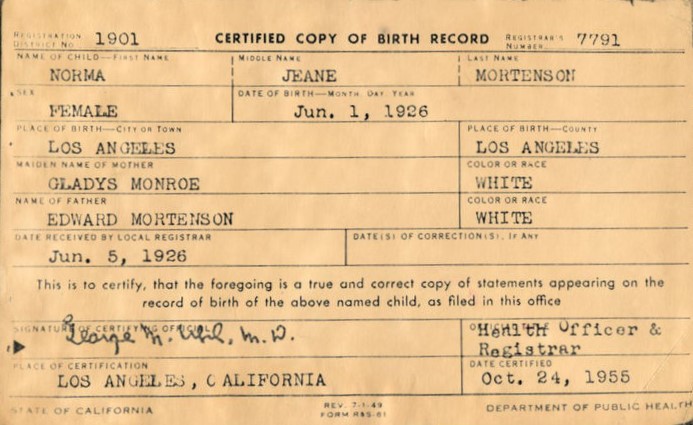If genealogy could ever be measured in research hours or impact on the economy, the results might astound us. We may know about the hundreds of hours we've personally spent chasing hidden ancestors, but do we realize that four-fifths of us in America and many millions of people in other countries visit cultural heritage sites every year? Do we know that, according to Family Tree Magazine in August 2015, it's estimated that Scotland will have more than $3.6 billion in economic impact of ancestral tourism between 2012 and 2017? In the "center of genealogy" in Salt Lake City, Utah, the RootsTech/FGS conference, an estimated impact of $18.5 million was generated in 2015. So says Family Tree. Have we ourselves considered individual family reunions and genealogy research travel?
Enlivening Family Reunions
Our family is our first community, and family reunions are one of the growing areas of genealogy travel. How can we make the most of them? Increasingly, they are places to congregate and share new information gleaned about our families through available resources as well as reconnecting with - or meeting - relatives for the first time. While we attend family reunions, shouldn't we be gathering/documenting new information about our relatives so that their images and voices are saved for future generations?Wouldn't we have loved it if we could have heard the voice of our Italian great-grandfather or our great-grandma from England? If we use apps to record our family members and edit/upload those images to family trees, Facebook pages, Genealogists.com or other locations, young people in our families may get involved in genealogy earlier, too. Not into audio/video? Plan ahead and work with a family member to create soft-cover booklets of labelled still shots of family members after the reunion. While you're at it, take several front-lit portrait-style photos of family groups that may be used by the family to document itself. Here are some tips about creating oral histories: https://familysearch.org/blog/en/bring-family-story-life-oral-histories/ Be sure to enjoy all the family members, revel in their uniqueness, and eat some of grandma's peach pie while you're at a reunion!
Organized Wanderlust
While there's little to rival family reunions for personal bonds fostered, you may be curious about your ancestors' country of origin. You want to walk where grandfather walked! For Americans, unless you are Native American, that will mean visiting another country, seeing the family's ancestral home, and perhaps many other communities and research facilities. For world citizens outside America, there will usually be travel to "some other place" too. There is little as transformational as looking into the eyes of a family halfway around the world who shares your selfsame life force.Pre-trip organization pays off! In addition to meeting new relatives with whom you share bloodlines and visiting family home/gathering locations in another country or part of a country, you'll probably want to visit archives, libraries, historical associations, and/or cemeteries. These are often open during limited hours and not on the weekends, so you'll want to know operational hours. You'll want to determine precisely what kinds of information a repository holds, and perhaps ask for it ahead of time via e-mail or phone so that archivists and librarians aren't sent scrambling to dig out/provide often very old information on the spot. At a recent seminar in Arkansas, "Genealogy Roadshow's" Josh Taylor recommended two hours of prep time for each hour of research time at a facility.Genealogy traveler/researcher Ann Fourt recently returned from learning about Quaker ancestors and others. She recommends: create a researcher's bag that includes money for copies, magnifiers, yellow highlighters, pens, pencils, graph paper, small scanners for documents that can't be copied. Find out ahead of time what items maybe be photographed, as some archives don't permit iPads or tablets in. Bring shaving cream in your bag to elucidate engravings on cemetery stones. Some of the historic older cemeteries are in such dilapidated condition that they may only be reached by ATVs or golf carts. Take some time to determine if cemeteries may be visited when you are nearby. Also, give yourself a bonus: Determine if nearby museums would add context to your trip/your ancestors. I recently visited my grandmother's hometown of Abilene, Kansas. She was a Red Cross nurse in World War I. We visited the World War I museum in Kansas City on the way. It happened to feature a special exhibit on Red Cross nurses!
Post-Wanderlust Synthesis
When we return from exhilarating travel, it's sometimes easy to forget to organize critical information/artifacts because we're weary from wonderful adventures. We simply want to savor them. We want to share our photos and to reflect on our ancestors' journeys. Taking the time soon after our travel to organize/identify our photos, new information and memories of the journey are part of our own life experiences that will enhance family research. They also need to be organized in behalf of others who may explore them when we're no longer around.As we travel and take time to find our ancestors' roots, it's satisfying to think that somewhere, our ancestors are also likely "rooting" for us! Many risked everything and braved dangerous seas while in steerage to start new lives. Now their children, after generations of affluence, fly back in air-conditioned cabins to the worlds they inhabited. Through travel, we seek to reclaim their passion for living by breathing life into them again





